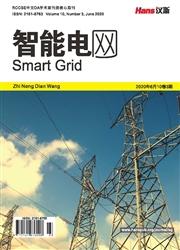Demand Side Management Considering Household Appliances and EV
引用次数: 1
Abstract
Combination of information technology and power engineering is the feature of the next-generation grid. Depending on bidirectional communication, demand side management (DSM) aims at carrying out optimization on the electricity usage pattern of customers to improve energy efficiency and minimize environmental impact. In the present study, a DSM optimization algorithm is designed, which can perform load shifting on a household level based on Time-of-Use strategy. Several flexible appliances, Plug-in hybrid electric vehicle (EV) charging and rooftop photovoltaic (PV) are considered. The results show that the daily electricity cost has a decline of 19% after optimization. 12% reduction of domestic carbon emission is also achieved from the variation of grid carbon intensity and energy provided by rooftop PV. With the growing proportion of EVs and renewable energy, smarting scheduling of household load has a significant impact on grid stability and energy efficiency.考虑家用电器和电动汽车的需求侧管理
信息技术与电力工程相结合是下一代电网的特点。需求侧管理(DSM)是通过双向通信,对客户的用电模式进行优化,以提高能源效率和减少对环境的影响。在本研究中,设计了一种基于分时策略的用电需求侧优化算法,可以在家庭层面上进行负荷转移。考虑了几种灵活的电器,插电式混合动力汽车(EV)充电和屋顶光伏(PV)。结果表明,优化后的日电费下降了19%。通过电网碳强度的变化和屋顶光伏提供的能源,国内碳排放量也减少了12%。随着电动汽车和可再生能源比例的不断提高,家庭负荷的智能调度对电网的稳定性和能效产生了重大影响。
本文章由计算机程序翻译,如有差异,请以英文原文为准。
求助全文
约1分钟内获得全文
求助全文

 求助内容:
求助内容: 应助结果提醒方式:
应助结果提醒方式:


